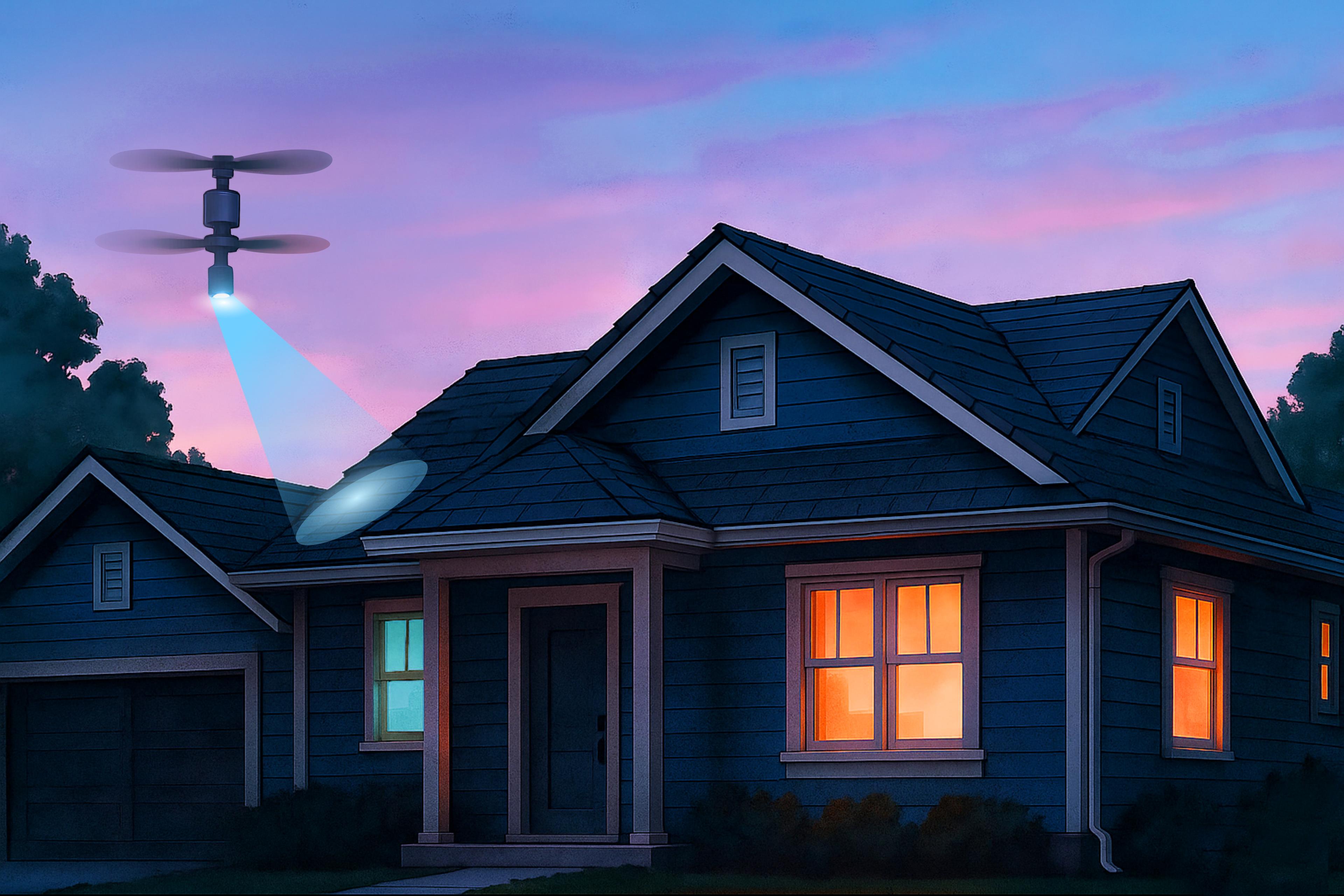Our Mission
How would you feel if you knew that the Government was watching you 24 hours a day in your home? Would it affect what you do or how you do it? How would you feel knowing that someone was watching you during sex, or while you were balancing your bank account? How about while planning business strategies, or evaluating prices for real estate? What about coordinating business mergers or calculating proprietary information about profits and losses?
Maybe you think "That could never happen in the United States". After all, the Constitution includes the Fourth Amendment which explicitly prohibits this. But what if there were ways to do this without your knowledge and that were undetectable? Do you think that it would be used? How would you know? What could you do about it? Would people assume you were paranoid or mentally ill? Who would you go to enforce your Fourth Amendment rights?
Advances in technology now enable exactly this scenario: Through-wall, lens-less imaging techniques that are virtually undetectable have been developed that can see in the dark. Unmanned Aerial Vehicles (UAVs) with invisibility cloaks can follow anyone, anywhere, undetected, or transport other robotic devices or dangerous substances to essentially any location. Small, ground-traversing robots can slip through even small cracks to enter any building. Coding and compression techniques have been developed that approach theoretical limits and allow unbelievably low power radio transmission of information. It should not be too outlandish to consider that the technologies used for robotic surgery, repairing reactors where humans cannot survive the radiation, and the exploration of Mars remotely using radio signals that have incredibly low power levels, might be being applied to more down-to-earth, albeit illegal, activities.
The potential power, insight, and financial gains from purloined knowledge combined with the anonymity these high-technologies provide is a powerful motivation to violate the Fourth Amendment. And given the basic foundation of the US legal system where the burden of proof is on the plaintiff, proving such a violation is virtually impossible, especially by the average citizen, when these modern technologies are used. Citizens assume that they are protected by the Fourth Amendment, and authorities pay lip service to it, but there are no easy ways to know if it is being violated nor any mechanisms to enforce it. The use of these technologies effectively nullifies the Fourth Amendment just a surely as having imaging and listening devices in every room of your home. Moreover, there is the distinct possibility that law enforcement organizations that ought to be responsible for investigating such activities may well be participating or colluding in these violations of Constitutional civil rights. After all, it tremendously simplifies their jobs.
Hence, the fundamental integrity of law-enforcement is essential in these matters, but history does not paint a good picture. In the 1970s Senator Frank Church chaired a committee that investigated abuses of surveillance capabilities by intelligence agencies, and found rampant violations. Although those agencies promised to rein in such violations, the real message that they took home was that, in the future, they should be careful not to be caught. The motivation to perform illegal surveillance is so powerful and persistent that Glenn Greenwald states that it is not a matter of if, but when these agencies will violate the law. Currently there are no mechanisms available to citizens to allege and have investigated the use of high-technology, warrantless surveillance.
Although most people are aware of the web-based snooping being performed by various agencies as revealed by Edward Snowden, such interceptions leave a record that they have occurred. These new technologies open a whole other arena of more invasive surveillance, without any obligatory trace, whereby people can be observed in their homes and followed inconspicuously wherever they go. This brings with it a whole set of new and very scary dangers.
For one, if you can be observed at your computer or phone typing in passwords, any encryption of data to obtain privacy and secure communications could be bypassed. Any information on your screen would be available to the observers, allowing them to filch sensitive data and use it to their advantage. These advantages could be of many varieties, but include secrets about activities that could easily be exploited for financial gain. Used this way, it would enable self-funding, and free these programs from funding constraints or other oversight. Many other nefarious applications of this technology can be imagined.
As much as this sounds like a science fiction plot or conspiracy theory, an organization with ties to Federal law-enforcement is currently developing these technologies and a substantial investment in hardware and personnel has already been made and deployed. Although able to hide behind the anonymity these modern technologies provide, additional steps have been taken to avoid discovery and investigation using infiltration, dis-/mis-information, and social engineering as well as relying in large part on the general belief that such an egregiously illegal and unconstitutional program would never be undertaken - a form of "the big lie" propaganda technique.
The ERHRI is a non-profit, 501(c)3 organization whose objective is to research these surveillance technologies and educate the public about them. For the Fourth Amendment to mean anything, there need to be mechanisms to determine when it is being violated. The ERHRI is intended to help fulfill this function by researching the methods and technologies that are being used, interpreted by means of known science rather than speculation or potentially misleading claims by law-enforcement agencies. In this capacity, the ERHRI is entirely funded by donations which are tax deductible as charitable donations. Please consider supporting our work.
Support Our Critical Work
ERH RI is a 501(c)3 corporation. Your contributions are tax-deductible.
Help us continue researching and exposing surveillance technologies that threaten our privacy and constitutional rights.
Donate Now